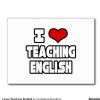|
ESL Forum:
Techniques and methods
in Language Teaching
Games, activities
and teaching ideas
Grammar and
Linguistics
Teaching material
Concerning
worksheets
Concerning
powerpoints
Concerning online
exercises
Make suggestions,
report errors
Ask for help
Message board
|
ESL forum >
Ask for help > Seems little but poses a big problem
Seems little but poses a big problem
|
|

Tere-arg

|
|
History of the articles
"Historically, the articles are really "adjectives". The was originally a form of that, a demonstrative adjective. You can see its nature as a demonstrative with the meaning that in such sentences as:
I was not there at the time (i.e. at that particular time)
I told him I was busy at the moment. That car cost $2,500 and was cheap at the price.. He is an engineer of something of the kind.. Lend you money? I shall do nothing of the kind.
In old English an was a numeral adjective. A stressed form became modern English one; an unstressed form became an. "
from A Comprehensive English Grammarfor foreign students page 52
C.E. Eckersley and J.M. Eckersley
Longman
|
8 Oct 2008
|
|
|

brahmam

|
Thank you all Zora, Vickii, Damielle, Tere, goodnesses, Mands for your explanations. Even after seeing all these responses, I am in a dilemma because my students are asked to identify these a, an, the as parts of speech. What should they do. Still an unsolved problem.
In a way I tend to agree on Tere�s opinion but anyway there is no clear explanation I think. Hope some native speaker creates a worksheet.
--brahmam
|
8 Oct 2008
|
|
|

Tere-arg

|
As regards a/an/the I just quoted what the book says.
In my mother tongue a/an are considered adjectives as they say something about the noun.
In the same way "the" says something, identifying it. When we say "the dog" we know what dog we are talking about...as different from saying "a dog"...so each of these words are modifying the noun.
I consider them adjectives when it comes to parts of the speech.
Of course, the best thing would be to have a clear grammar text or a native speaker who can give good grounds to this theory.
There is an online dictionary I often use which has a forum where you can ask this kind of questions and even ask for some material.
WordReference.com
http://www.wordreference.com/es/
|
8 Oct 2008
|
|
|

Zora

|
Hi brahmam...
As I usually have the sometimes pleasant task, or unpleasant depending on the situation, of teaching grammar... I can assure you that nowadays "A, an, the" are used only as "indefinate articles" - an adjective is now considered something that describes a particular quality of a noun.
Here�s a link that will clear some of your doubts:
http://dictionary.reference.com/browse/a
|
8 Oct 2008
|
|
|

Tere-arg

|
Zora,
That is one of the links the dictionary URL I left offers.
Anyway, be careful when using them as they are not complete.
As you can imagine, if you want something complete, you have to pay.
That is why I highlighted that the most interesting thing is the forum as there you will find people from all over the world and surely somebody who can help.
I use the internet a lot but always rely upon books much more.
Eckersly says:
"The words a(n) and the are generally called �articles�" ...what sets a ground for research.
I teach them as articles and that is the way you are going to find it when surfing all the internet: very simple English, very simple explanation.
What Brahmam needs belongs to a higher level of study.
Have a nice Wednesday!
|
8 Oct 2008
|
|
|

Zora

|
Hi tere :-) (my sister is called Teresa too... )
As you yourself pointed out ... it was considered an adjective in "OLD English" - today it isn�t the case... as also I checked my grammar book - I have three and none of them consider "a, an or the" as an adjective. They are "articles" "A, an" are "indefinite" and "the" is "definite".
I think what his students need to be able to do is identify it and then say which type of article it is.
|
8 Oct 2008
|
|
< Previous
1
2
|